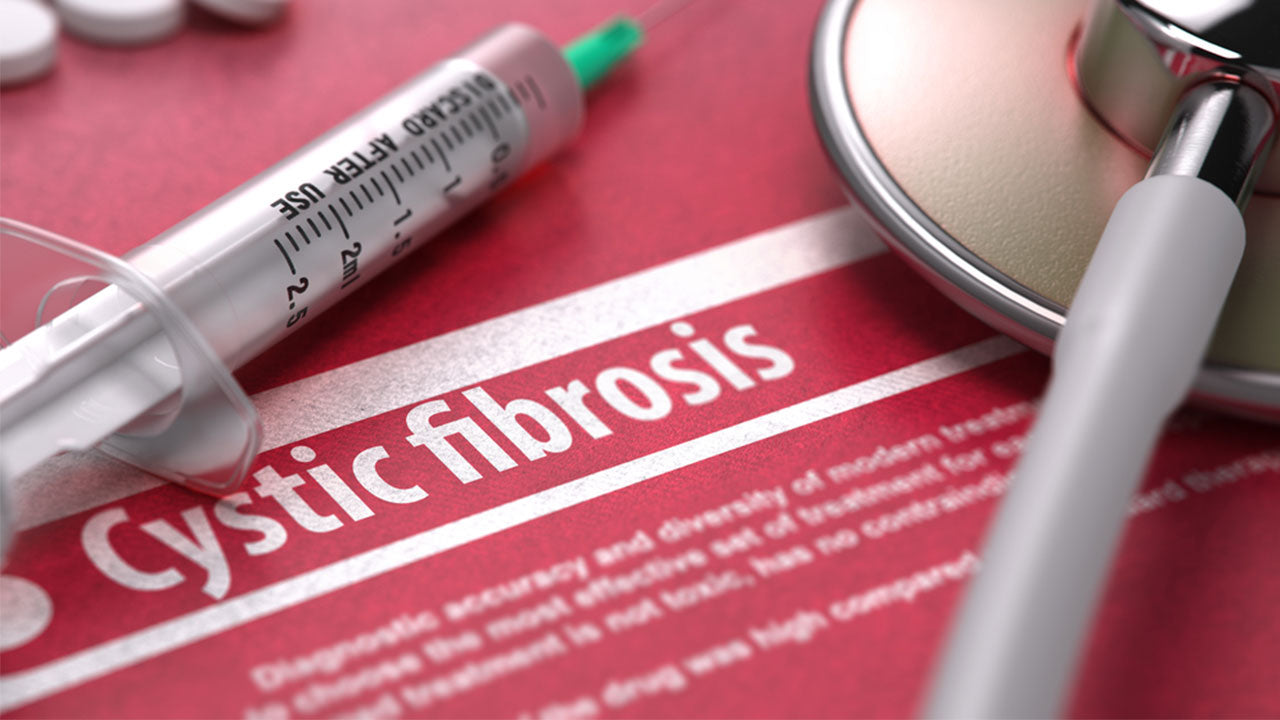Cystic Fibrosis and Amino Acids: How Essential Amino Acids Can Help Build Muscles
 By: by Amino Science
By: by Amino Science

Cystic fibrosis is an inherited disease that’s caused by a defect in the cystic fibrosis transmembrane conductance regulator (CFTR) gene. This defect impairs the function of the CFTR protein, which regulates the movement of chloride ions into and out of the epithelial cells that form the sweat glands and line the passageways inside the lungs, liver, pancreas, and digestive and reproductive systems. Normally, the epithelial cells produce thin, freely flowing mucus, which is used to lubricate and protect the lining of these various organs. However, with loss of CFTR function comes a disruption of the chloride channel that results in a decreased ability to control the movement of chloride ions across cell membranes. This, in turn, leads to an imbalance in salt and water that results in excessively salty sweat and thick, sticky mucus that plugs up tubes, ducts, and passageways. While cystic fibrosis is widely recognized as a lung disease, fewer people may be aware of the effect it can have on muscle mass and the close relationship that exists between cystic fibrosis and amino acids.
Who’s Susceptible to Cystic Fibrosis?
Cystic fibrosis is what’s known as a recessive disease, which means a person must inherit the defective gene from both parents. People who inherit only one copy of the gene are called carriers. While they themselves won’t develop cystic fibrosis, they can pass the gene on to their own children.
Cystic Fibrosis Symptoms
The symptoms of cystic fibrosis vary depending on the severity of the disease and may wax and wane. Moreover, some people don’t experience any symptoms until they become teenagers or adults. Although parents of children with cystic fibrosis may first notice excessively salty skin when giving their kids a kiss, people suffering from adult cystic fibrosis are more likely to have less common symptoms, such as recurrent pancreatitis and pulmonary exacerbations, including pneumonia, as well as problems with infertility (in men).
Because screening for cystic fibrosis is now performed in newborns in every state in the United States, the condition can be diagnosed before symptoms develop. However, people born before screening was instituted need to be aware of the signs and symptoms associated with cystic fibrosis.
| Persistent cough with thick mucus | Delayed growth |
| Salty-tasting skin | Poor weight gain |
| Wheezing | Loss of appetite |
| Shortness of breath | Severe constipation |
| Exercise intolerance | Abdominal distention |
| Recurrent respiratory infections | Male infertility |
| Stuffy nose | Recurrent pancreatitis |
| Foul-smelling, greasy stools | Clubbed fingers |
Complications of Cystic Fibrosis
Cystic fibrosis is a serious disease that can lead to a number of complications affecting the respiratory, digestive, and reproductive systems. Some of these complications include:
- Airway damage
- Chronic respiratory infections
- Nasal polyps
- Respiratory failure
- Pancreatic insufficiency
- Diabetes
- Intestinal obstruction
- Male infertility
Treating Cystic Fibrosis
Treatment of cystic fibrosis is focused on thinning mucus, preventing and controlling infections and intestinal blockages, and ensuring adequate nutrition. This may be accomplished using a variety of therapies, including:
- Pulmonary rehabilitation to improve lung function and overall quality of life
- Antibiotics to treat respiratory infections
- Anti-inflammatories to reduce airway swelling
- Mucolytics to thin mucus
- Bronchodilators to open airways
- Pancreatic enzymes to aid digestion
- Chest physical therapy to clear airways

Cystic Fibrosis and Amino Acids
People suffering from cystic fibrosis have to use a lot of energy to breathe and fight off infections, but the digestive issues associated with the disease mean that they also have a harder time digesting protein. This results in fewer nutrients for the body to work with, which can lead to muscle wasting. Although it seems logical to increase the number of calories consumed and the amount of protein eaten in order to stimulate muscle gain, this approach has proven only partially successful.
However, a strategy that’s proven successful is the use of essential amino acids to help build muscle. Essential amino acids are the “active” components of dietary protein involved in stimulating muscle protein synthesis. In other words, essential amino acids must be present in order for protein to be created, and without protein, there can be no growth of lean body mass, including muscle. Essential amino acids also have the ability to overcome the resistance to the muscle-building effect of dietary protein that occurs in many pathological states—including cystic fibrosis.
This is especially significant for cystic fibrosis patients because the thick mucus associated with this disease makes it difficult for the pancreas to secrete the digestive enzymes needed to properly digest food. However, essential amino acids are readily absorbed by the body without the need for digestive enzymes.
This ability of amino acids to bypass the usual process of digestion and go right to work building protein has been borne out in research as well. For example, a recent study published in the Journal of Cystic Fibrosis demonstrated that children with cystic fibrosis who were given 6.7 grams of free essential amino acids had greater gains in protein synthesis than those who received a mixture of both essential and nonessential amino acids in the form of whey protein. And this improvement in muscle protein synthesis was seen regardless of the child’s nutritional status.
The results obtained in this study are significant because preserving muscle mass in cystic fibrosis is particularly important. In fact, according to the Cystic Fibrosis Foundation, improved muscle mass in cystic fibrosis patients:
- Helps maintain lung function
- Increases longevity
- Improves muscle function
- Increases exercise performance
- Decreases cystic fibrosis flares and hospitalizations
- Decreases bone loss
- Increases quality of life
While there’s still no known cure for cystic fibrosis, improved treatments mean that people with the disease are now living longer. In fact, the life expectancy of people living with cystic fibrosis has risen dramatically over the past several decades, with an average life span now of about 37 years, according to the National Institutes of Health (NIH).
And because the amount of muscle mass a person has can have a significant impact on both longevity and quality of life, it might be wise to speak with your health care provider about adding a balanced amino acid supplement—with amino acid concentrations suited to your particular needs—to your cystic fibrosis treatment plan.

Up to 25% off Amino
Shop NowTAGS: benefits
Join the Community
Comments (0)
Most Craveable Recipes




 833-264-6620
833-264-6620



















